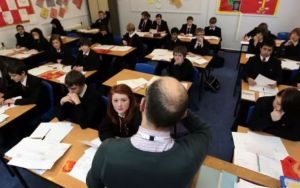A new study claims that the UK schools should educate their students on the risks of gambling alongside sex, drugs, and alcohol education.The report, from independent charity Demos, showed the results of a two-year pilot scheme that had taken place to give students the necessary information and tools to understand and recognised the risks and signs of problem gambling.The education was also designed to help young people learn to resist the temptation of certain marketing strategies that younger players tend to be mote susceptible to.
The program
Part-sponsored by GambleAware, an industry-funded charity focused on raising awareness for problem gambling, included 650 students, all 14 years old, across four schools across the UK in 2016.By teaching these students how to identify the signs of problem gambling in themselves and others, and have a full and comprehensive understanding of risk and impulses, the program looked to reduce the issue of gambling amongst young people.The program seemed effective, with a decline of 7% among those pupils who admitted to playing cards for money in the last year when compared with a comparison group, while a net decline of 3% in those students who were considered “at risk” due to admitting to engaging in four or more types of gambling over the year was also identified.
Prevention is preferable
Speaking of the program, Demos’ Simone Vibert, said:“Given that young people are routinely taught about the risks of drugs, alcohol and underage sex, the fact that so few are taught about gambling is an anomaly.“Problem gambling can wreak havoc on people’s lives, not to mention their friends, families and the wider economy. Prevention is clearly preferable to treatment later down the line. These lessons encourage pupils to weigh risk, manage impulses and advise others – all things that can help prevent problem gambling and other risky behaviour too.”












